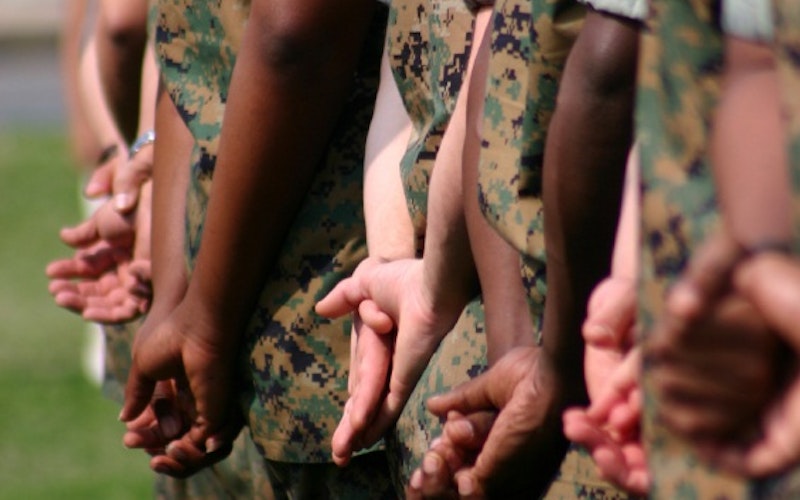
Culture At Large
Urinating Marines and interpreting the atrocities of war
Last month, Americans were forced to face - again - the moral frailty of our own troops when the Internet video of U.S. Marines urinating on dead Taliban fighters in Afghanistan made headlines. Condemnation of the four Marines was swift. U.S. Defense Secretary Leon Panetta called the video “utterly despicable” and Secretary of State Hillary Clinton assured the world that the “vast, vast majority” of U.S. military personnel were above such shameful behavior.
This incident was the latest in a series of similarly shameful incidents that have occurred over the last 10 years since the United States has been engaged in large-scale military operations in Iraq and Afghanistan - including the notorious photos taken at Abu Ghraib prison in Baghdad.
Each time these reports surface, Americans are shocked, outraged - and a little unsettled because deep down we want to believe that our soldiers could never commit these kinds of inhumane atrocities. Our cultural mythology - the American civil religion - teaches us that we are the good guys, that we hold the moral high ground. To maintain our national identity in the face of such embarrassing exposures, we not only condemn the deviant behavior (as we should), but we also condemn the perpetrators as deviant outliers (as Secretary of State Clinton did) in an attempt to assure ourselves and the world that the rest of us would never - could never - degrade our fellow man in this way.
The Gospel challenges us to think differently about these scandals. The behavior of the Marines captured on video is indeed despicable and must be punished, but Scripture teaches that we are all guilty of treating our neighbor as less than human. We are each capable of desecrating the image of God in our enemy, and do so daily in more subtle ways. This is the message Jesus gave in the Sermon on the Mount when he interpreted the Ten Commandments. Hatred is a form of murder; lust is a form of adultery. And using racial slurs or otherwise denigrating the enemy in our speech - even our public policy speeches - precedes more egregious forms of dehumanizing behavior. In acknowledging that the capacity for hatred lurks within each of us, we can more adeptly provide our soldiers with the resources needed to combat the hatred when it arises.
The Gospel challenges us to think differently about these scandals.
Recognizing the inhumanity we are all capable of should drive us to wrestle with the unintended consequences of training elite, efficient killing machines. As Reserve Marine Lt. Col. Paul Hackett said to the Associated Press, “When you ask young men to go kill people for a living, it takes a whole lot of effort to rein that in.” Consequently, as the AP reminds us, “desecration of battlefield dead is as old as war itself.” Although war may at times be a necessity, the intense environment in which our soldiers operate can be dehumanizing.
In training and supporting our troops, we must be cautious as we walk the fine line between celebrating heroism and glorifying war. As an Army friend said, we must instill and cultivate in our soldiers “the image of the noble warrior, as opposed to the uncontrolled savage. The vision of a professional who represents the best of our nation can be a vital restraint even in extreme circumstances.”
Interpreting these events through the lens of the Gospel also reinforces the importance of the military chaplaincy. The trauma of war extends beyond the realm of physicians, psychiatrists and psychologists. In as much as we seek to send our young men and women into battle with the best equipment and the latest battlefield technologies, we must also equip our soldiers to navigate the very real spiritual struggles that war can evoke.
For Discussion
- What is your reaction when you hear of "despicable" acts committed by United States military personnel?
- Is it possible to engage in military conflict as a "noble warrior?" What might that mean?
- How can the Gospel message speak to those who have served in war, either honorably or dishonorably?
Topics: Culture At Large, News & Politics, Justice, North America